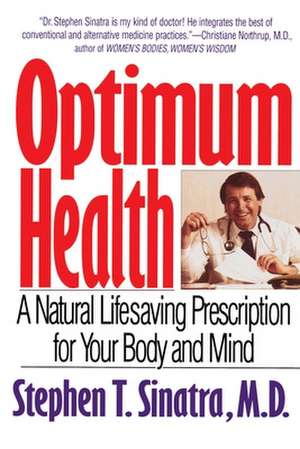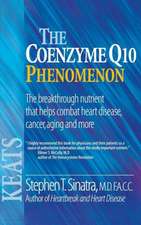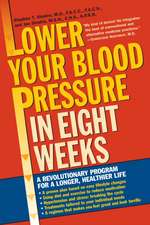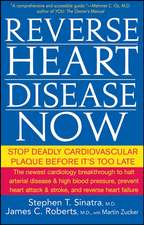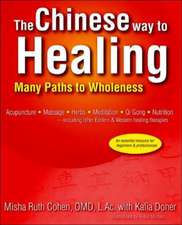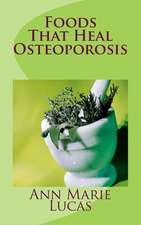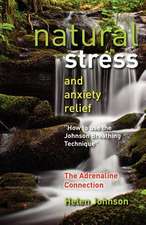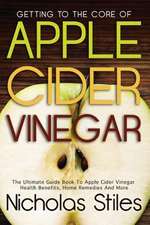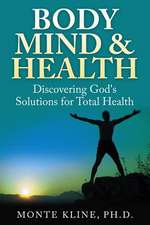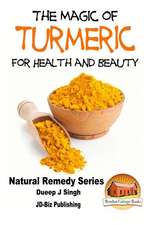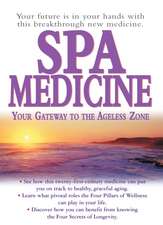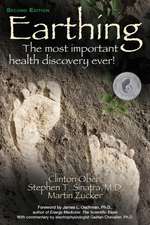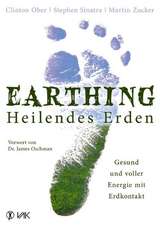Optimum Health: A Natural Lifesaving Prescription for Your Body and Mind
Autor Stephen T. Sinatraen Limba Engleză Paperback – 31 mai 1998
In this groundbreaking book, Dr. Stephen Sinatra shows us how we can take control of our health through the latest findings of mind-body medicine. As a leading cardiologist and psychotherapist, Dr. Sinatra is a uniquely qualified expert in the field. Dr. Sinatra's well-balanced, totally natural program of nutritional, emotional, and physical strategies can dramatically improve the quality of your life and help you live longer.
Eight simple rules for optimum health--they could save your life
The insulin-resistance epidemic and the Great Fat Debate
The myth, fact, and fiction of cholesterol
Discover the heart-healing secrets of the Mediterranean diet
Coenzyme Q10: a miracle vitamin for heart health
A natural approach to healing arthritis
Dr. Sinatra's natural cholesterol-lowering formula
Recipes for preventive medicine
Dr. Sinatra's antiaging prescription
And much more!
Preț: 120.28 lei
Nou
Puncte Express: 180
Preț estimativ în valută:
23.02€ • 25.02$ • 19.35£
23.02€ • 25.02$ • 19.35£
Carte disponibilă
Livrare economică 31 martie-14 aprilie
Preluare comenzi: 021 569.72.76
Specificații
ISBN-13: 9780553379228
ISBN-10: 0553379224
Pagini: 352
Dimensiuni: 154 x 234 x 23 mm
Greutate: 0.53 kg
Editura: Bantam Books
ISBN-10: 0553379224
Pagini: 352
Dimensiuni: 154 x 234 x 23 mm
Greutate: 0.53 kg
Editura: Bantam Books
Extras
Nutritional Healing for the Year 2001
Phytonutrients/Phytotherapy
My gradual transition toward nutritional/metabolic healing started in the early 1980s with my own personal use of vitamin and mineral supplements. However, it was not until 1984 that I began to prescribe vitamin and mineral support to my patients. Two years later I began to use low doses of coenzyme Qin my practice. I administered it to patients about to undergo coronary artery bypass surgery and to patients who suffered from heart failure. I also prescribed 10 mg of coenzyme Q three times daily as a nutritional support for patients going on the "heart/lung" machine during cardiac surgery. Since 1986, I have become increasingly comfortable integrating complementary approaches with traditional Western medicine to facilitate healing.
I now have tremendous confidence recommending coenzyme Q in doses of 360 to 400 mg to treat my most difficult cases of congestive heart failure. I have noticed that as I have become more comfortable using nutritional support systems, many patients have become more confident as well. Frequently, many of my cardiac patients would request that I treat them for other health problems. As a board-certified cardiologist, I lacked confidence in treating illnesses outside my own area of specialty. But I observed many "accidental cures" occurring over the years. For example, when I was treating arthritic cardiac patients, coincidentally many of them reported their arthritic symptoms improved on my treatment plan--a plan that integrated various diets, herbal remedies, and nutritional support systems.
My patients have always been my best teachers. I learn from them every day. When a phytonutrient relieves symptoms in one patient, I then feel more confident recommending it to others with similar symptom constellations. One thing I am sure about is that natural foods, herbs, vitamins, minerals, and other phytonutrients have the potential to reduce or eliminate symptoms, much like prescription drugs; and they do not have the side effects of pharmacotherapy. Because of my experience in treating thousands of patients, listening to them discussing their symptoms, and witnessing their recoveries, I have grown to feel quite comfortable recommending phytonutrients even for ailments outside the field of cardiology.
In addition to my personal and clinical experience, my knowledge base in nutritional supplemental healing expanded during the research for two books I have authored on the subject. When patients ask me to help them with heart disease, depression, sexual dysfunction, psoriasis, constipation, prostate problems, and even cancer, I feel confident in my recommendations.
In this section of the book, I will offer you some of the insights I have obtained from my experience in treating these patients. With rare exceptions, I only prescribe herbs, vitamins, and minerals that I have taken myself. In fact, over the last twenty-five years I have seldom recommended complementary strategies to patients that I have not experienced myself, including psychotherapy, myofascial therapy, deep tissue massage, cranial/sacral therapy, martial arts, herbal remedies, vitamins, and even chelation therapy. Because of my firsthand experience with these healing modalities, I can offer you insights into many of the more common maladies that affect not only cardiac patients, but also most of us in general. Let's start with depression and fatigue.
Depression and Fatigue
Not a day goes by in my office that I fail to meet someone who is fatigued, tired, listless, or just lacking in energy. I often hear complaints such as "Doc, I just don't have my usual spark." Many of these people are mildly depressed, lacking that "bounce in their step." This is my remedy:
1. B vitamin support including folic acid, B-6, B-1, B-2, B-12, and biotin. Take at least 40 mg of vitamins B-1, B-2, and B-6; 40 mcg of B-12 and 300 mcg of biotin. Take pantothenic acid, 50 to 250 mg daily.
2. Coenzyme Q, 60 mg after each meal.
3. L-tyrosine, 2 grams one to two times daily. (Do not exceed 4 grams daily.) Tyrosine is an essential amino acid that gets into the brain easily, passing the blood-brain barrier. Once absorbed by the brain, tyrosine is a precursor to the neurotransmitters dopamine and norepinephrine. These two neurotransmitters are directly dependent upon dietary tyrosine. Supplementing tyrosine should increase these active neurogenic transmitters in the body. Please note that tyrosine should not be taken in the presence of antipsychotic medications (usually prescribed by physicians) or in the presence of malignant melanoma, a form of skin cancer.
4. Ginkgo biloba, 40 mg three times daily.
5. Saint-John's-wort, 300 mg three times daily. Saint-John's-wort is an herbal remedy for depression. Hypericin, the active ingredient, causes an inhibition of serotonin re-uptake. It has been nicknamed "herbal Prozac."
Nutrients for the aging brain-- "I can't remember . . . "
Although memory loss is not an inevitable consequence of aging, it is a fact that the average brain loses about 10 percent of its mass as we approach our golden years. Many of my older patients tell me, "I can't remember this," or "I can't recall that." However, memory problems affect all of us. Each of us knows the frustration of being unable to retrieve or recall a needed piece of information. Because stress and depression affect memory, it is important to consider the nutritional support suggestions I recommended in the fatigue and depression section of this chapter. In addition to those suggestions, I would recommend the following nutrients for the "aging brain":
1. Eat foods high in DMAE (dimethylaminoethanol) such as sardines and anchovies, or take 100 mg of DMAE daily.
2. Take at least 30 mg of lipoic acid daily. (Lipoic acid, like L-tyrosine and Pycnogenol, can cross the blood-brain barrier to protect cellular membranes from oxidation. As a polypeptide, lipoic acid is also a chelator of excess iron, copper, and other toxic metals such as cadmium, mercury, and lead. (Because lipoic acid also increases glutathione levels, it has antioxidant potential.)
3. Pycnogenol, 30-60 mg three times a day.
4. Phosphatidylserine, 30 mg one to two times a day. (Phosphatidylserine protects brain cell membranes.)
Most of these nutritionals, including L-tyrosine, B vitamins, and ginkgo, can be purchased in health food stores.
Nutritional Support for Prostate Health
As a cardiologist, I treat many men over the age of fifty. Many of these men have prostate problems as well. While lecturing to the prostate support group at Manchester Memorial Hospital, I was amazed at how many younger men (in their forties) had prostate problems, including cancer. Diet is one of the best ways to protect against prostate cancer. Throughout this book I have been praising the healing capabilities of soybean products. Soybeans contain isoflavones rich in natural phytoestrogens. Extensive research has shown that these compounds have many protective benefits, reducing the incidence of prostate cancer in study populations. There is also experimental evidence that phytoestrogens also protect against colon cancer. Not only do soy products protect the circulatory system, but the phytoestrogen effect of genistin found in soybeans protects against the bone loss that leads to osteoporosis. For men, these phytoestrogens are especially important in reducing the incidence of prostate cancer. It is noteworthy that Japanese men, whose diet is low in fat and high in soy products, have a low incidence of prostate cancer.
Another nutrient associated with the prevention of prostate cancer is lycopene. Lycopene is a protective carotenoid responsible for the red color in tomatoes. Several studies have observed a direct association between increased consumption of tomatoes and a reduction in the risk of prostate cancer. When it comes to prostate health, men should consider the nutritional protection found in tomatoes and tomato sauces, as well as the many soy products I have discussed in previous sections of this book.
However, there are specific herbs and nutritionals that are also useful in prostate healing. In addition to the low saturated fat, lycopene, and a soy-enriched diet, I recommend the following for prostate health:
1. Avoid alcohol and nicotine.
2. Take natural vitamin/mineral preparations including folic acid, vitamin E, zinc, and mixed carotenoids, including beta carotene and lycopene.
3. Take saw palmetto, 160 mg to 320 mg daily, for an enlarged prostate. Saw palmetto is a safe, cost-effective natural alternative for treating BPH (benign prostatic hypertrophy). Clinical studies, such as that described in Michael Murray'sThe Healing Power of Herbs, have determined that it is as effective--if not more effective--than the widely prescribed drug called Proscar. Saw palmetto attacks BPH by reducing levels of DHT (dihydrotestosterone). DHT is the active form of testosterone, the major culprit causing enlargement of the prostate gland. Saw palmetto also blocks the action of 5-alpha reductase, the enzyme that converts testosterone to DHT. Increased 5-alpha reductase activity and high levels of DHT appear to be major contributors to BPH.
4. Pygeum africanum, 50 to 75 mg per day. Pygeum africanum is a nontoxic tree native to Africa. Its medicinal properties are derived from the bark of the trunk. It is particularly effective in reducing the size of the prostate gland and in enhancing prostatic secretions.
5. Stinging nettles, 150 mg daily, may help to increase urine flow.
6. GLAs (gamma linolenic acids), 2,000 to 3,000 mg daily (in the form of evening primrose oil, borage oil, or black currant oil).
Impotence
Whether the result of an enlarged prostate or sexual dysfunction, men of all ages may experience impotence. The following suggestions have helped many of my patients with this problem:
1. Use a multivitamin/mineral formula with zinc, at least 30 mg per day.
2. Take L-tyrosine, 2-3 grams daily.
3. Consume L-arginine 4 grams at bedtime. (Doses greater than 6 grams may increase growth hormone, thus stimulating testosterone production.)
4. Use coenzyme Q, 60 mg after meals.
5. Take Siberian ginseng, 2 grams per day.
6. Ingest ginkgo biloba, 120 mg daily.
7. Use saw palmetto, 160 to 320 mg daily.
8. Consider Corynanthe yohimbe. (Note that yohimbine, a substance found in the bark of the yohimbe tree, is powerful and can have side effects. Since its primary action is to increase blood flow to erectile tissue, an increase in heart rate and blood pressure may occur. Corynanthe yohimbe should not be used without the supervision of a physician.)
9. Consider Muira puama. (This herb, native to Brazil, has long been used to improve libido and sexual function. Although Muira puama's mechanism of action is unknown, its effectiveness in erectile function may be related to enhancing self-esteem. In one study of 262 patients, 1 to 2 grams of Muira puama extract produced a significant response in at least 50 percent of the subjects. Muira puama is often placed in various male formulas in low dosage. These nutritional support systems can usually be found in health food stores.
Phytonutrients/Phytotherapy
My gradual transition toward nutritional/metabolic healing started in the early 1980s with my own personal use of vitamin and mineral supplements. However, it was not until 1984 that I began to prescribe vitamin and mineral support to my patients. Two years later I began to use low doses of coenzyme Qin my practice. I administered it to patients about to undergo coronary artery bypass surgery and to patients who suffered from heart failure. I also prescribed 10 mg of coenzyme Q three times daily as a nutritional support for patients going on the "heart/lung" machine during cardiac surgery. Since 1986, I have become increasingly comfortable integrating complementary approaches with traditional Western medicine to facilitate healing.
I now have tremendous confidence recommending coenzyme Q in doses of 360 to 400 mg to treat my most difficult cases of congestive heart failure. I have noticed that as I have become more comfortable using nutritional support systems, many patients have become more confident as well. Frequently, many of my cardiac patients would request that I treat them for other health problems. As a board-certified cardiologist, I lacked confidence in treating illnesses outside my own area of specialty. But I observed many "accidental cures" occurring over the years. For example, when I was treating arthritic cardiac patients, coincidentally many of them reported their arthritic symptoms improved on my treatment plan--a plan that integrated various diets, herbal remedies, and nutritional support systems.
My patients have always been my best teachers. I learn from them every day. When a phytonutrient relieves symptoms in one patient, I then feel more confident recommending it to others with similar symptom constellations. One thing I am sure about is that natural foods, herbs, vitamins, minerals, and other phytonutrients have the potential to reduce or eliminate symptoms, much like prescription drugs; and they do not have the side effects of pharmacotherapy. Because of my experience in treating thousands of patients, listening to them discussing their symptoms, and witnessing their recoveries, I have grown to feel quite comfortable recommending phytonutrients even for ailments outside the field of cardiology.
In addition to my personal and clinical experience, my knowledge base in nutritional supplemental healing expanded during the research for two books I have authored on the subject. When patients ask me to help them with heart disease, depression, sexual dysfunction, psoriasis, constipation, prostate problems, and even cancer, I feel confident in my recommendations.
In this section of the book, I will offer you some of the insights I have obtained from my experience in treating these patients. With rare exceptions, I only prescribe herbs, vitamins, and minerals that I have taken myself. In fact, over the last twenty-five years I have seldom recommended complementary strategies to patients that I have not experienced myself, including psychotherapy, myofascial therapy, deep tissue massage, cranial/sacral therapy, martial arts, herbal remedies, vitamins, and even chelation therapy. Because of my firsthand experience with these healing modalities, I can offer you insights into many of the more common maladies that affect not only cardiac patients, but also most of us in general. Let's start with depression and fatigue.
Depression and Fatigue
Not a day goes by in my office that I fail to meet someone who is fatigued, tired, listless, or just lacking in energy. I often hear complaints such as "Doc, I just don't have my usual spark." Many of these people are mildly depressed, lacking that "bounce in their step." This is my remedy:
1. B vitamin support including folic acid, B-6, B-1, B-2, B-12, and biotin. Take at least 40 mg of vitamins B-1, B-2, and B-6; 40 mcg of B-12 and 300 mcg of biotin. Take pantothenic acid, 50 to 250 mg daily.
2. Coenzyme Q, 60 mg after each meal.
3. L-tyrosine, 2 grams one to two times daily. (Do not exceed 4 grams daily.) Tyrosine is an essential amino acid that gets into the brain easily, passing the blood-brain barrier. Once absorbed by the brain, tyrosine is a precursor to the neurotransmitters dopamine and norepinephrine. These two neurotransmitters are directly dependent upon dietary tyrosine. Supplementing tyrosine should increase these active neurogenic transmitters in the body. Please note that tyrosine should not be taken in the presence of antipsychotic medications (usually prescribed by physicians) or in the presence of malignant melanoma, a form of skin cancer.
4. Ginkgo biloba, 40 mg three times daily.
5. Saint-John's-wort, 300 mg three times daily. Saint-John's-wort is an herbal remedy for depression. Hypericin, the active ingredient, causes an inhibition of serotonin re-uptake. It has been nicknamed "herbal Prozac."
Nutrients for the aging brain-- "I can't remember . . . "
Although memory loss is not an inevitable consequence of aging, it is a fact that the average brain loses about 10 percent of its mass as we approach our golden years. Many of my older patients tell me, "I can't remember this," or "I can't recall that." However, memory problems affect all of us. Each of us knows the frustration of being unable to retrieve or recall a needed piece of information. Because stress and depression affect memory, it is important to consider the nutritional support suggestions I recommended in the fatigue and depression section of this chapter. In addition to those suggestions, I would recommend the following nutrients for the "aging brain":
1. Eat foods high in DMAE (dimethylaminoethanol) such as sardines and anchovies, or take 100 mg of DMAE daily.
2. Take at least 30 mg of lipoic acid daily. (Lipoic acid, like L-tyrosine and Pycnogenol, can cross the blood-brain barrier to protect cellular membranes from oxidation. As a polypeptide, lipoic acid is also a chelator of excess iron, copper, and other toxic metals such as cadmium, mercury, and lead. (Because lipoic acid also increases glutathione levels, it has antioxidant potential.)
3. Pycnogenol, 30-60 mg three times a day.
4. Phosphatidylserine, 30 mg one to two times a day. (Phosphatidylserine protects brain cell membranes.)
Most of these nutritionals, including L-tyrosine, B vitamins, and ginkgo, can be purchased in health food stores.
Nutritional Support for Prostate Health
As a cardiologist, I treat many men over the age of fifty. Many of these men have prostate problems as well. While lecturing to the prostate support group at Manchester Memorial Hospital, I was amazed at how many younger men (in their forties) had prostate problems, including cancer. Diet is one of the best ways to protect against prostate cancer. Throughout this book I have been praising the healing capabilities of soybean products. Soybeans contain isoflavones rich in natural phytoestrogens. Extensive research has shown that these compounds have many protective benefits, reducing the incidence of prostate cancer in study populations. There is also experimental evidence that phytoestrogens also protect against colon cancer. Not only do soy products protect the circulatory system, but the phytoestrogen effect of genistin found in soybeans protects against the bone loss that leads to osteoporosis. For men, these phytoestrogens are especially important in reducing the incidence of prostate cancer. It is noteworthy that Japanese men, whose diet is low in fat and high in soy products, have a low incidence of prostate cancer.
Another nutrient associated with the prevention of prostate cancer is lycopene. Lycopene is a protective carotenoid responsible for the red color in tomatoes. Several studies have observed a direct association between increased consumption of tomatoes and a reduction in the risk of prostate cancer. When it comes to prostate health, men should consider the nutritional protection found in tomatoes and tomato sauces, as well as the many soy products I have discussed in previous sections of this book.
However, there are specific herbs and nutritionals that are also useful in prostate healing. In addition to the low saturated fat, lycopene, and a soy-enriched diet, I recommend the following for prostate health:
1. Avoid alcohol and nicotine.
2. Take natural vitamin/mineral preparations including folic acid, vitamin E, zinc, and mixed carotenoids, including beta carotene and lycopene.
3. Take saw palmetto, 160 mg to 320 mg daily, for an enlarged prostate. Saw palmetto is a safe, cost-effective natural alternative for treating BPH (benign prostatic hypertrophy). Clinical studies, such as that described in Michael Murray'sThe Healing Power of Herbs, have determined that it is as effective--if not more effective--than the widely prescribed drug called Proscar. Saw palmetto attacks BPH by reducing levels of DHT (dihydrotestosterone). DHT is the active form of testosterone, the major culprit causing enlargement of the prostate gland. Saw palmetto also blocks the action of 5-alpha reductase, the enzyme that converts testosterone to DHT. Increased 5-alpha reductase activity and high levels of DHT appear to be major contributors to BPH.
4. Pygeum africanum, 50 to 75 mg per day. Pygeum africanum is a nontoxic tree native to Africa. Its medicinal properties are derived from the bark of the trunk. It is particularly effective in reducing the size of the prostate gland and in enhancing prostatic secretions.
5. Stinging nettles, 150 mg daily, may help to increase urine flow.
6. GLAs (gamma linolenic acids), 2,000 to 3,000 mg daily (in the form of evening primrose oil, borage oil, or black currant oil).
Impotence
Whether the result of an enlarged prostate or sexual dysfunction, men of all ages may experience impotence. The following suggestions have helped many of my patients with this problem:
1. Use a multivitamin/mineral formula with zinc, at least 30 mg per day.
2. Take L-tyrosine, 2-3 grams daily.
3. Consume L-arginine 4 grams at bedtime. (Doses greater than 6 grams may increase growth hormone, thus stimulating testosterone production.)
4. Use coenzyme Q, 60 mg after meals.
5. Take Siberian ginseng, 2 grams per day.
6. Ingest ginkgo biloba, 120 mg daily.
7. Use saw palmetto, 160 to 320 mg daily.
8. Consider Corynanthe yohimbe. (Note that yohimbine, a substance found in the bark of the yohimbe tree, is powerful and can have side effects. Since its primary action is to increase blood flow to erectile tissue, an increase in heart rate and blood pressure may occur. Corynanthe yohimbe should not be used without the supervision of a physician.)
9. Consider Muira puama. (This herb, native to Brazil, has long been used to improve libido and sexual function. Although Muira puama's mechanism of action is unknown, its effectiveness in erectile function may be related to enhancing self-esteem. In one study of 262 patients, 1 to 2 grams of Muira puama extract produced a significant response in at least 50 percent of the subjects. Muira puama is often placed in various male formulas in low dosage. These nutritional support systems can usually be found in health food stores.
Recenzii
"Dr. Stephen Sinatra is my kind of doctor! He integrates the best of conventional and alternative medicine practices."
--Christiane Northrup, M.D., author of Women's Bodies, Women's Wisdom
"Packed with the latest research and resources, Optimum Health is an easy-to-follow prescription for well-being that epitomizes the new approach to natural health and integrative medicine. Dr. Sinatra is a beacon of knowledge, common sense, and compassion."
--Joan Borysenko, Ph.D., author of Minding the Body, Mending the Mind and A Woman's Book of Life
"One of the best, most comprehensive books I have seen on how to stay healthy. I highly recommend it."
--Jean Carper, author of Miracle Cures
"Dr. Sinatra is an insightful and innovative cardiologist who has written a very important book. Optimum Health is designed to be used for healing. Many will be enriched by it."
--Julian Whitaker, M.D., author of Dr. Whitaker's Guide to Natural Healing
--Christiane Northrup, M.D., author of Women's Bodies, Women's Wisdom
"Packed with the latest research and resources, Optimum Health is an easy-to-follow prescription for well-being that epitomizes the new approach to natural health and integrative medicine. Dr. Sinatra is a beacon of knowledge, common sense, and compassion."
--Joan Borysenko, Ph.D., author of Minding the Body, Mending the Mind and A Woman's Book of Life
"One of the best, most comprehensive books I have seen on how to stay healthy. I highly recommend it."
--Jean Carper, author of Miracle Cures
"Dr. Sinatra is an insightful and innovative cardiologist who has written a very important book. Optimum Health is designed to be used for healing. Many will be enriched by it."
--Julian Whitaker, M.D., author of Dr. Whitaker's Guide to Natural Healing
Descriere
In this perfect prescription for taking charge of one's health, a cardiologist offers unique treatment ideas and natural therapies that fight against heart disease, cancer, and autoimmune diseases. Dr. Sinatra offers powerful information on nutrition, easy-to-follow exercises and guidelines, and even tasty, healthy recipes.
Notă biografică
Stephen T. Sinatra
